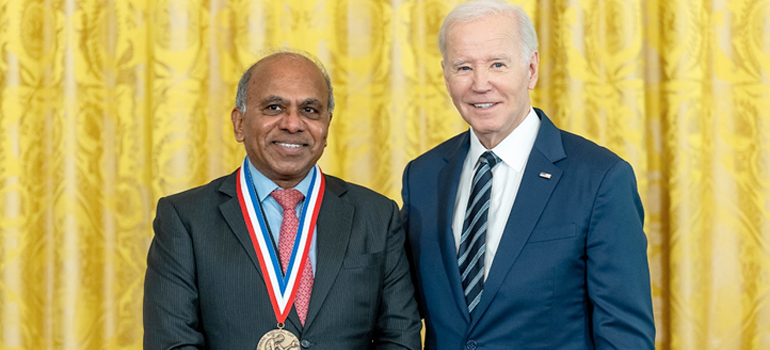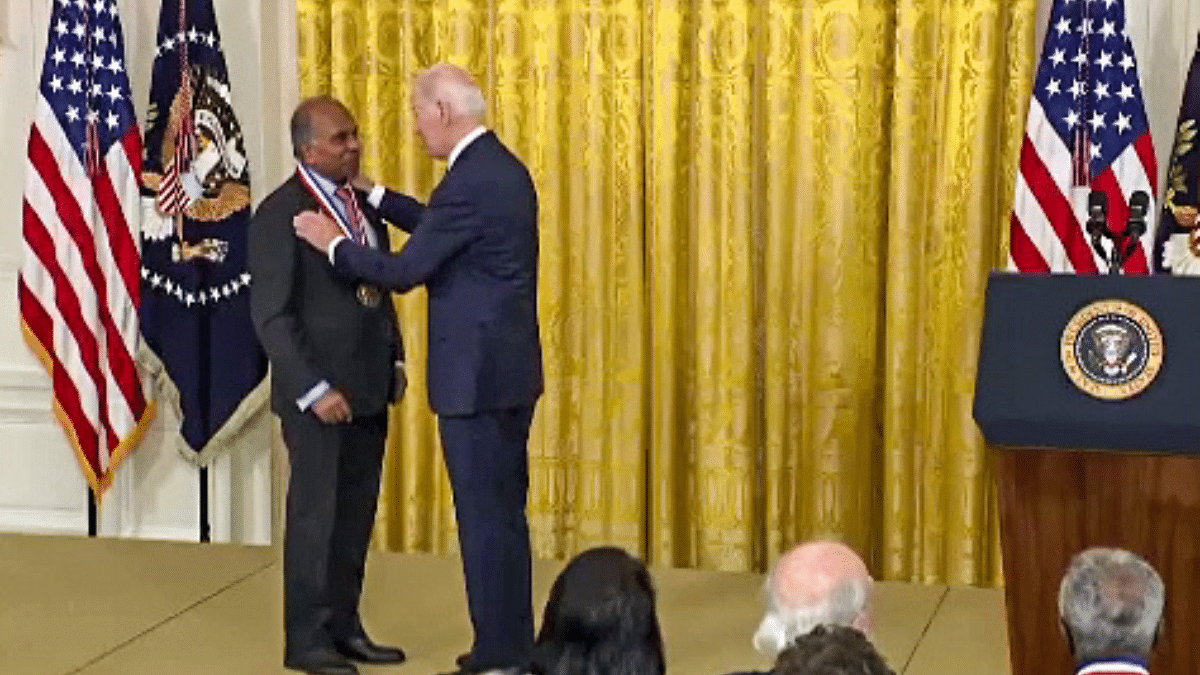
As a professor at the University of California, Berkeley, in 2005, Ashok Gadgil’s pioneering innovation was a cooking stove, which changed the lives of over 46,000 women in war-torn Darfur, Sudan. The inexpensive, metal cooking stove, called the Darfur-Berkeley stove, reduced the need for firewood and led to less air pollution.
On 24 October, Gadgil was awarded the National Medal of Technology and Innovation — one of the highest scientific honours in the world — by US President Joe Biden. He was among two Indian-Americans who were honoured that day, the other being Professor Subra Suresh, who received the National Medal of Science.
Both Suresh and Gadgil are alumni of the Indian Institutes of Technology (IIT) Madras and Kanpur, respectively. They were praised by President Biden for “advancing scientific research that helped communities worldwide”.
Suresh also received the Padma Shri award in 2011.
Talking about Suresh, Professor Mahesh Panchagnula, Dean (Alumni and Corporate Relations), IIT Madras, told ThePrint, “It is a matter of great pride that one of our Distinguished Alumni Awardees and a longtime well-wisher of IIT Madras has won America’s highest honour in the space of scientific and technological innovation.”
Suresh, who was reportedly the first Asian-born American to head the National Science Foundation of the US, began his academic journey with an engineering degree from IIT Madras.

US President Joe Biden confers the National Medal of Technology and Innovation on Indian American scientist Subra Suresh
He then earned his master’s from Iowa State University and a Ph.D. in mechanical engineering from Massachusetts Institute of Technology (MIT) at the age of 25.
In 2012, during a talk at the National Academy of Sciences, Suresh recalled how his colleague had once challenged him, “Why are you working with dead materials in engineering, instead of with living materials?”
This, he said, inspired him to apply engineering principles to study human diseases, such as malaria and cancer. According to the MIT website, in 2004, he worked with scientists from MIT and the National University of Singapore to identify exactly how human blood cells re-engineer their shape when infected with malaria. This research was considered groundbreaking for the disease’s treatment.
Gadgil’s work, on the other hand, has focused on using scientific research to solve problems such as unsafe drinking water, excessive firewood consumption, and clean energy access in developing countries.
His first innovation in 1993 was UV Waterworks — a device that used ultraviolet light to disinfect water and prevent cholera outbreaks in India and Bangladesh. Like the Berkeley-Darfur stove, UV Waterworks was a low-cost innovation that was widely distributed.
Original News Link
https://theprint.in/science/from-malaria-research-to-clean-water-how-subra-suresh-ashok-gadgil-won-top-us-science-award/1822391/